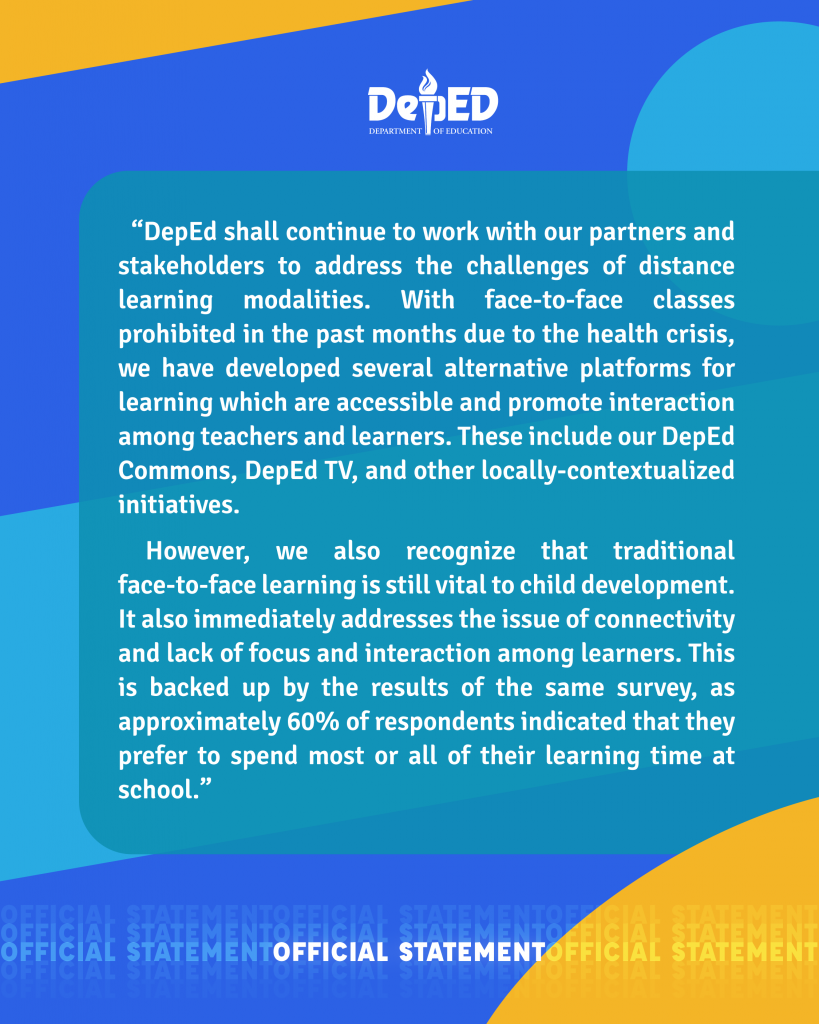 |
December 23, 2020 – The Department of Education (DepEd) acknowledges the results of the PAHAYAG End-of-the-Year survey, an independent and non-commissioned poll done by PUBLiCUS Asia Inc. covering December 3-9, 2020.
According to the survey results, the majority (~75%) are receptive to the blended learning environment during the pandemic. We would like to thank the public for their continuous cooperation and support for the implementation of Basic Education-Learning Continuity Plan (BE-LCP) as we enter a more hopeful 2021.
DepEd shall continue to work with our partners and stakeholders to address the challenges of distance learning modalities. With face-to-face classes prohibited in the past months due to the health crisis, we have developed several alternative platforms for learning which are accessible and promote interaction among teachers and learners. These include our DepEd Commons, DepEd TV, and other locally-contextualized initiatives.
However, we also recognize that traditional face-to-face learning is still vital to child development. It also immediately addresses the issue of connectivity and lack of focus and interaction among learners. This is backed up by the results of the same survey, as approximately 60% of respondents indicated that they prefer to spend most or all of their learning time at school.
Next year, we will pilot face-to-face classes in select schools in low-risk areas (at least under Modified General Community Quarantine or MGCQ), as greenlighted by the President and the Cabinet. The pilot implementation will determine the capacity of localities to manage the reintroduction of in-person classes, given the stringent conditions and health protocols.
To be conducted with extra caution, the participation of schools in the pilot run will require a commitment for shared responsibility of DepEd, the local government unit (LGU), and the parents or guardians. Schools must also have stringent health and safety standards at home, during travel, and within school premises to be considered. For learners, they must secure a requisite permit issued by their parents before being allowed to join the pilot.
As we commit towards shared responsibility of protecting our learners’ health and welfare, we hope that our LGU, our parents or guardians, as well as our transportation and service providers, and other stakeholders will come together to support the challenges in achieving a better normal for our communities.
END


